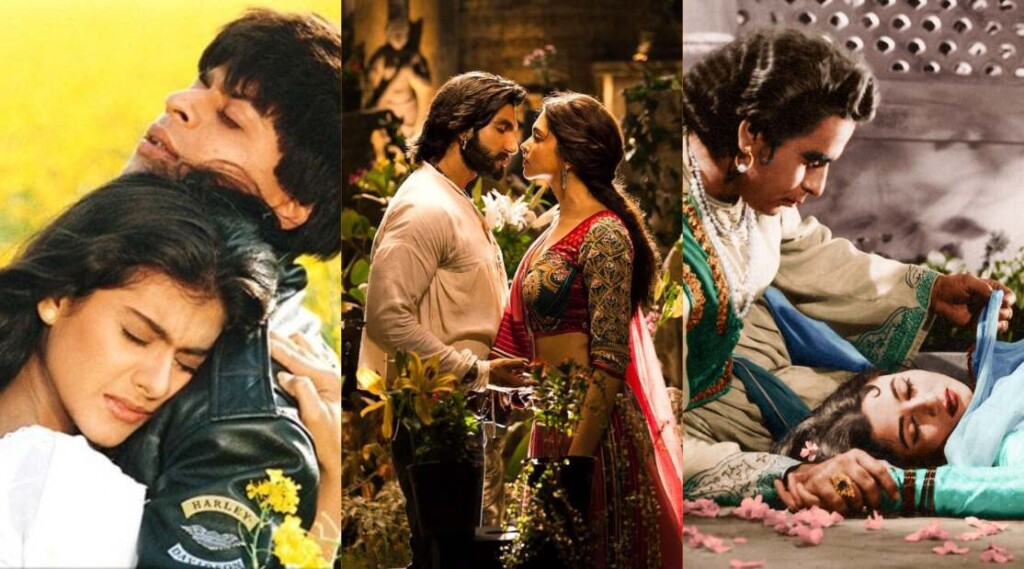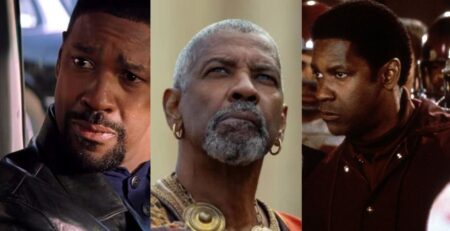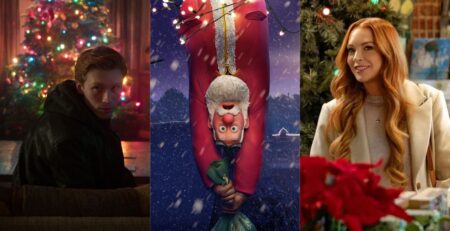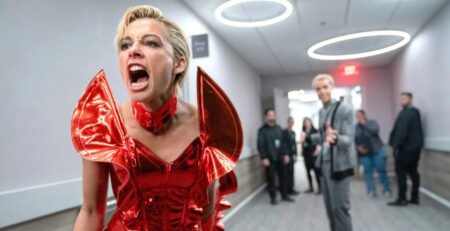It’s the middle of February and love is in the air, but something doesn’t seem quite right in the land of music and romance. You need Bollywood romances. Since its inception, Bollywood’s colorful and strident soul has immersed itself in love stories. Though Indian culture is still heavily rooted in the tradition of arranged marriages, it is Bollywood that keeps the dream of every romance alive.
Whether dabbling in action, fantasy, or even historical fiction, love remains the ultimate throughline—the driving emotional engine of an industry spellbound by the machinations of star-crossed lovers and inevitable soulmates. It’s a filmgoing tradition forged by the dreamers within most Indians, and it’s slowly but surely disappearing.
In recent years, love has become the exception rather than the norm, consigned to being a mere plot device or loose narrative thread in derivative action fare. Almost gone are the lush, lavish, and musical odes to true love, forced to make space for hypermasculine action extravaganzas rooted in religious nationalism. For a nation ceaselessly embroiled in division and unrest, such romantic fantasy served as a soothing cinematic remedy for what ailed the subcontinent’s spirit. But in attempting to cater to a growing chauvinistic and religious fervor, the escapist melodramas that fed India’s love of cinema are struggling to find a place on the silver screen.
Even Bollywood’s proclaimed “King of Romance,” Shah Rukh Khan, broke box office records in 2023 with action vehicles like Pathaan and Jawan. They are showing no sign of slowing the Hindi Film Industry’s acceptance of such cinematic jingoism.
The lovesick protagonists of Bollywood’s past now give way to toxic, uber-masculine heroes like Ranvijay Singh (Ranbir Kapoor in Animal), whose violence towards both his partner and enemy is something to romanticize, not criticize. Even on the international stage, the films that represent Indian cinema —like 2022’s RRR—are led by stars who not only flex their muscles at foes but embody Hindu deities while doing so.
In its political and social messaging, Bollywood has lost touch with its impassioned, escapist past. To rekindle that fire, especially during the month of love, here are ten films that wonderfully embody India’s storied romantic tradition of Bollywood romance.
Dilwale Dulhania Le Jayenge (1995)
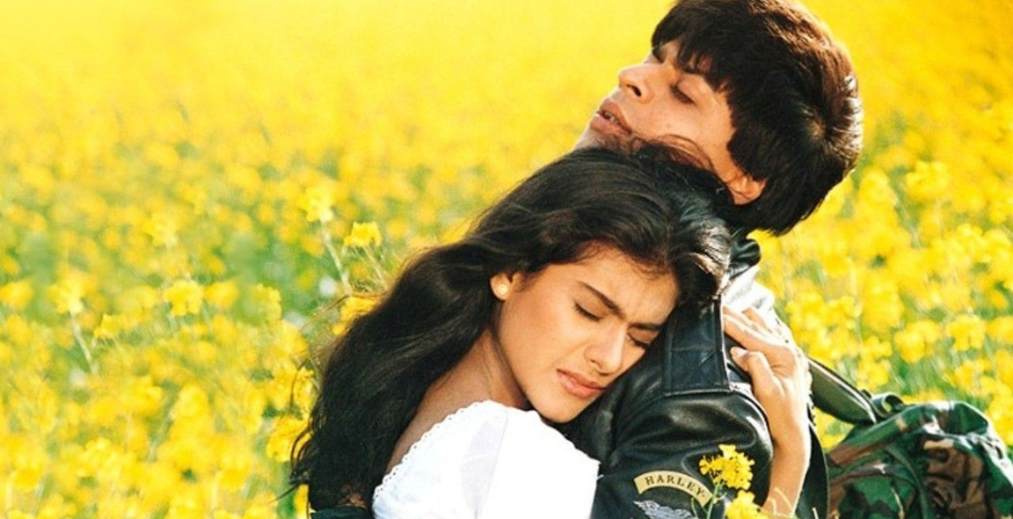
There’s a reason why Aditya Chopra’s much-adored Bollywood romance is still playing in theatres 28 years after it’s initial release. Beyond the infectious chemistry of Simran (Kajol) and Raj (Shah Rukh Khan) and its endlessly repayable collection of songs— including the now-iconic “Tujhe Dekha To”—the true power of Dilwale Dulhania Le Jayenge (DDLJ) lies in its melding of western appeal and cultural tradition. Its story set within London’s Indian diaspora, populated the notion that assimilating into a foreign culture need not involve camouflaging ourselves within it. Its most famous sequence is a vibrant testament to that sentiment, as the leather-jacketed Raj and the salwar-sporting Simran embrace in the mustard fields of Punjab, marrying the East and the West in the process.
Instead of eloping with Simran in the face of her parent’s disapproval, DDLJ offers an alternate, more holistic vision of Bollywood romance. Raj defiantly follows Simran to her arranged marriage in Punjab to persuade her family to accept him as her husband. What ensues is a journey that challenges how India views romance, where the beauty of marriage and love lies in the understanding between parents and their children. In embracing that, Indian values can be upheld anywhere one might go, from the rainy cityscapes of London to the mountainous beauty of the Swiss Alps.
Devdas (2002)
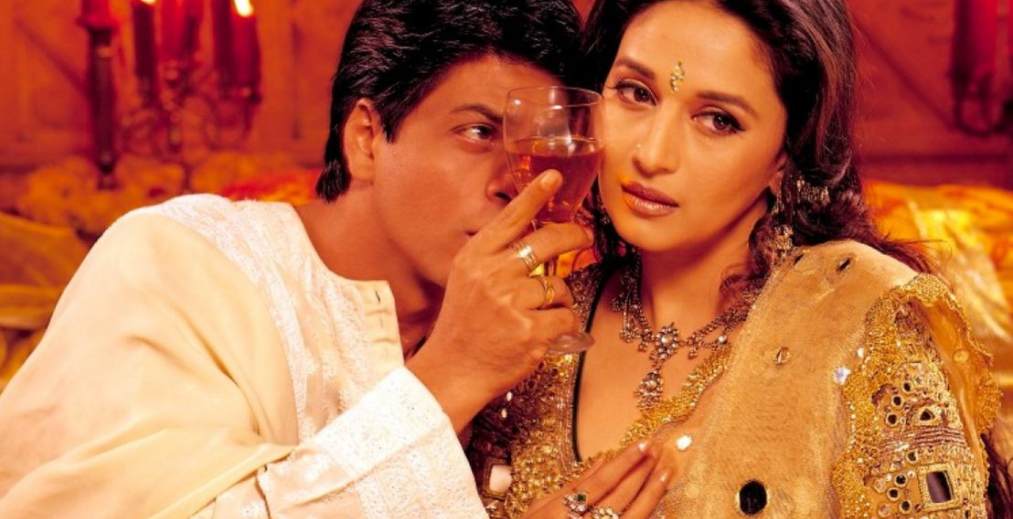
Sanjay Leela Bhansali’s Devdas finds the Bollywood romance at its most lavish, lyrical, and intoxicating. Adapted from the novel by Sarat Chandra Chattopadhyay, Devdas follows the tragic story of its titular protagonist, a prodigal son returning to his wealthy family after a decade abroad. His hopes of marrying his childhood sweetheart Paro (Aishwarya Rai) are quickly dashed by his parents, believing her family is beneath their status and station. Paro is married off to another family while an emotionally despondent Devdas (quite literally) drowns his misery in alcohol in the company of Chandramukhi (Madhuri Dixit), a kind courtesan.
Devdas finds these three megastars at the height of their powers, capturing pure anguish with the most theatrical of performances. Khan’s lurching, despondent figure commands every inch of the screen, giving way to the mesmerizing dance skills of Rai and Dixit. Both of whom light up the screen in one hit musical number after another—from love ballads like “Silsila Yeh Chaahat Ka” to classical rāgas like “Kahe Chhed Mohe.”
Their talents are only emboldened by Bhansali’s operatic technical vision, oozing with opulence and grandeur at each turn. Devdas is melodrama at its most heightened and affecting, where love and tragedy become inextricably linked. Just as Paro describes her love as a river bound for the sea, we, too, become lost in Devdas’s lush current.
Rockstar (2011)
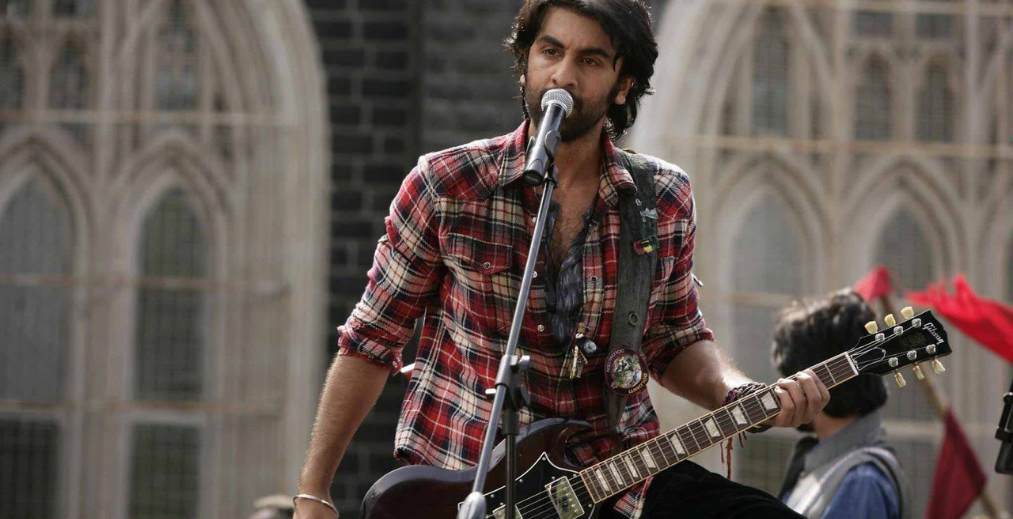
Before becoming synonymous with playing a violent, abusive gangster in Animal, Ranbir Kapoor played another combustive, larger-than-life persona in Imtiaz Ali’s Rockstar. Both a doomed romance and a character study, Kapoor plays Janardan Jakhar (“JJ”), a young man dreaming of becoming an international rockstar. JJ is convinced the path to attaining stardom involves experiencing the kind of life-altering heartbreak that can only produce hit singles. He finds that in Heer (Nargis Fakhri). But it’s only after they break up does their relationship blossom. The two are then forced to remain apart due to her marriage, relocation, and subsequent illness.
Rockstar unfolds as a cruel romantic irony. As in the process of becoming a star, JJ loses touch with what his heart truly desires, embodying a bitter, explosive, and arrogant musician whose talent explodes in popularity. In achieving his dream life, he loses the capacity to live the dream in the way he had originally hoped. Kapoor’s multi-faceted performance peels behind the mask of stardom, capturing how an unvarnished naivete can quickly lead to a jaded existence. Songs like “Nadaan Parinde” and “Tum Ho” only serve to bruise our hearts even further.
Fanaa (2006)
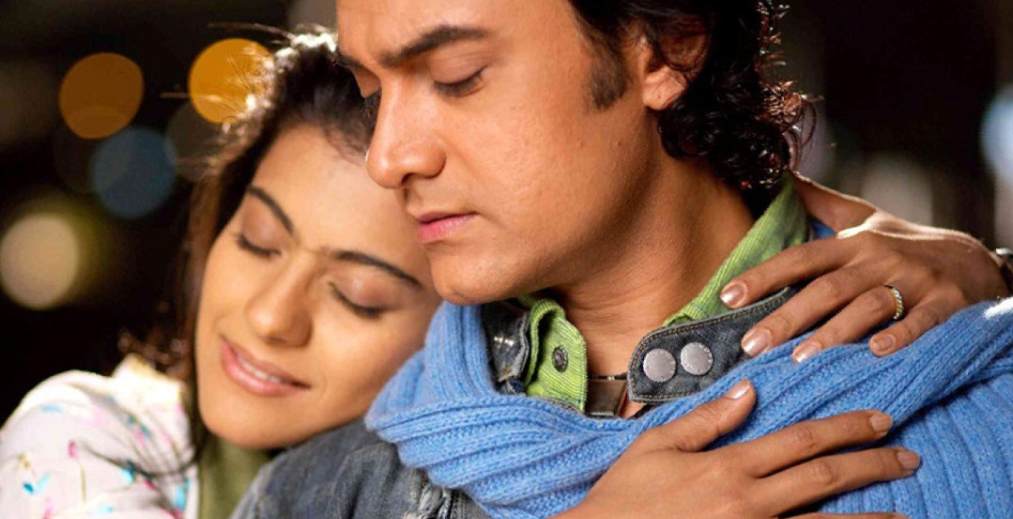
Kunal Kohli’s wistful and resplendent Fanaa is a tale of two movies that shouldn’t work together but do, unlike the doomed lovers at the heart of it. Part stunning Bollywood romance, part examination of the conflict-ridden Kashmir, Fanaa centres on Zooni (Kajol), a blind Kashmiri woman who travels to New Delhi and quickly falls in love with her poetry-reciting tour guide, Rehan (Aamir Khan)—who just happens to be a covert terrorist. After he’s supposedly killed in a bomb plot, Zooni returns home, pregnant with his child. Years later, she begins caring for an injured soldier who, unbeknownst to her, turns out to be her beloved Rehan.
It’s a wildly unorthodox treatise on love, especially in how its romantic sensibilities begin to merge with its grave, somber take on terrorism. The dire truth becomes both a blessing and a curse, in which fated lovers are both reunited and forced to reckon with the bloodshed that will soon unfold because of it. Kajol’s tender performance lends texture to a person caught in limbo, between the needs of her heart and the needs of her conscience. While Khan epitomizes the film’s title (which roughly translates to “destroyed”), conjuring a presence that is both oddly sympathetic and abhorrent. Its painfully beautiful title track, “Mere Haath Mein”, remains one of the more cherished ballads of the Bollywood canon.
Goliyon Ki Raasleela Ram-Leela (2013)
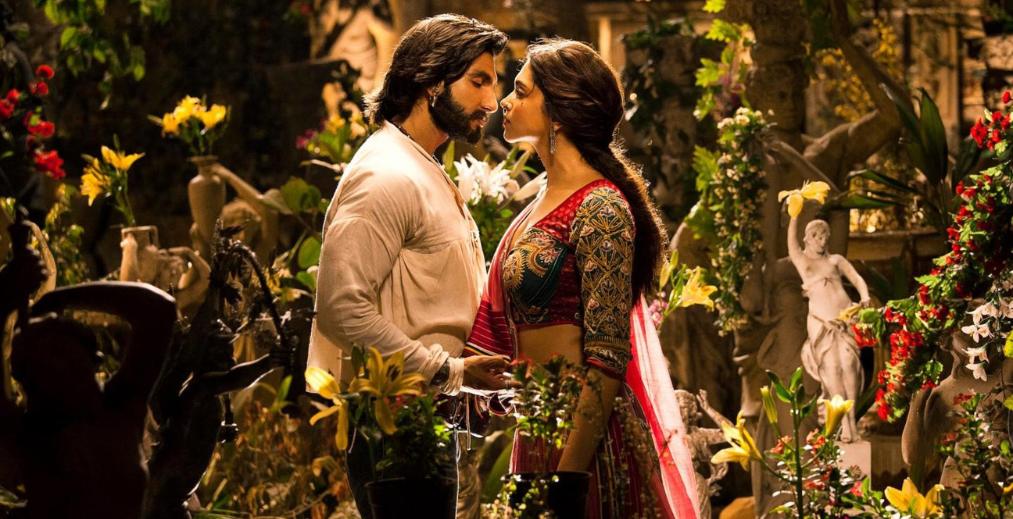
It’s only fitting that Sanjay Leela Bhansali’s second film on this list loosely adapts the most famous romance of them all: Romeo and Juliet. The warring Capulets and Montagues of Goliyon Ki Raasleela Ram-Leela (“A Dance of Bullets: Ram-Leela”) are set against the backdrop of a fictional village in rural Gujarat—where arms, blood, and opulence flow freely. Ram (Ranveer Singh) is the black sheep of the Rajadi clan, not only dealing in stolen cars and pornography but also fixated on peace with the Sanera family. When he falls hard for Leela (Deepika Padukone), we too fall under the spell of their doomed romance.
Yet, it is when the two become the respective heads of their families, does the seductive magic of Bhansali’s film overwhelm us. The would-be couple walks a dangerous line between desire and obligation—love and hate. While Bhansali adheres to the source material, he imbues it with such style and flair, that it becomes all too easy to fall prey to its operatic design. Ravishing tracks like “Lahu Munh Lag Gaya” (“I’ve tasted blood on my lips”) are sure to leave us swooning at any Holi celebration.
Dum Laga Ke Haisha (2015)
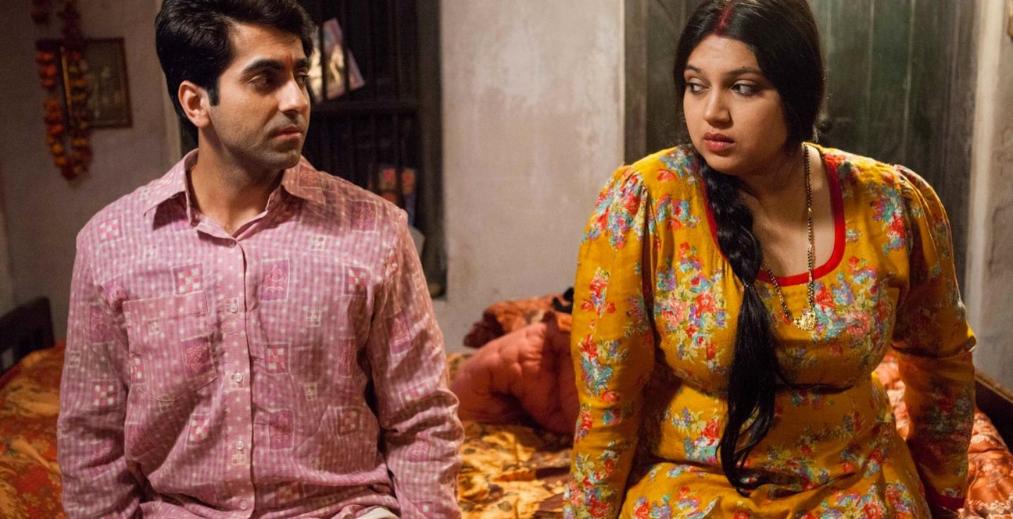
Much like its Western counterparts, 90s nostalgia has continued to burrow its way into the heart of Indian culture. Sharat Katariya’s Dum Laga Ke Haisha directly taps into that endearing vein with its 1995 Haridwar set story, luxuriating in the spirit and charm of that glorious pop culture decade. Ayushman Khurrana plays Prem Prakash Tiwari, an uneducated cassette shop owner who has an arranged marriage with the learned Sandhya (Bhumi Pednekar). Prem is uneasy in his relationship, finding her plus-sized figure unattractive. Yet, he’s unable to account for his own shortcomings or even contemplate her feelings about him. After much quarreling, she leaves him and forces him to re-evaluate what truly matters when it comes to love, sending him on a journey to win her back.
Abound with the period’s romanticism, Katariya’s film employs a lush catalog of era-appropriate music to navigate the more emotional and internalized facets of marriage, which become much more important than our accepted standards of female beauty. By the time 90s icon Kamar Sanu graces the screen with his lilting voice, we’re already swept off our feet.
Kal Ho Na Ho (2003)
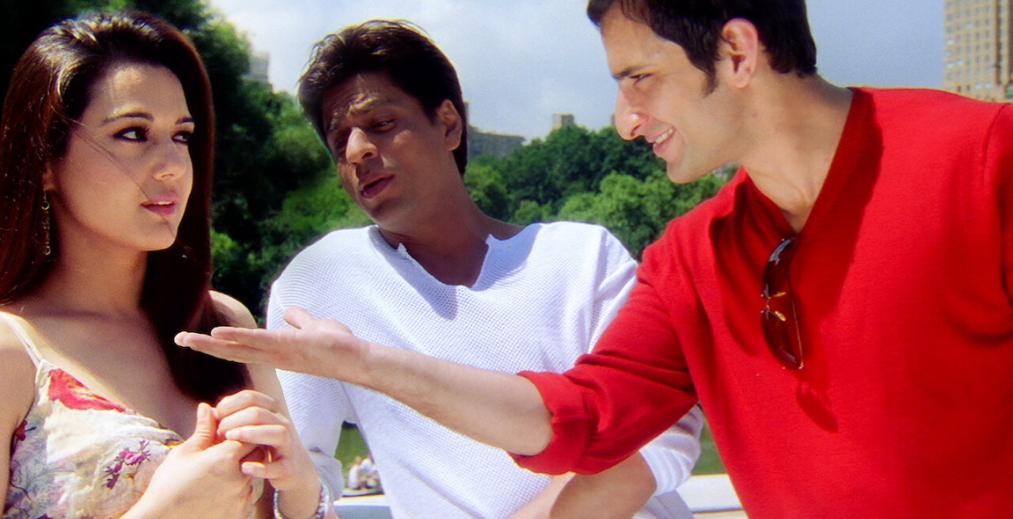
Nikhil Advani’s universally revered Kal Ho Na Ho (“There may be no Tomorrow”) is perhaps the quintessential comfort movie. Beyond its enchanting, deeply varied musical numbers and its picturesque vision of NRI life in New York City, Kal Ho Na Ho’s true resonance lies in how it runs the gamut of every human emotion in one fell swoop. From unadulterated Joy to crushing sadness, Advani’s classic is primed for repeat viewings— calling us to begin its whirlwind, life-affirming journey of highs and lows immediately after it ends.
At its heart lies a most poignant love triangle. Naina (Preity Zinta) is a young woman constrained by her fraught family life. She finds solace in her best friend Rohit (Saif Ali Khan)—who is secretly in with her— but can’t seem to find a way to overcome her household struggles. The course of her life changes drastically when she meets her new neighbor, Aman Mathur (Shah Rukh Khan in classic charismatic fashion). Though he’s surreptitiously nearing death due to a rare heart condition, his utter zest for life infects Naina, sending her on a crash course toward a love that can’t be. Yet, it’s not all doom and gloom. Kal Ho Na Ho is a deeply humorous film, armed with some sly fourth wall breaks and a mistaken bromance to die for. As its 186-minute runtime unfolds, we, too, begin to echo the film’s loveable threesome and embrace the importance of living in the moment.
Darr (1993)
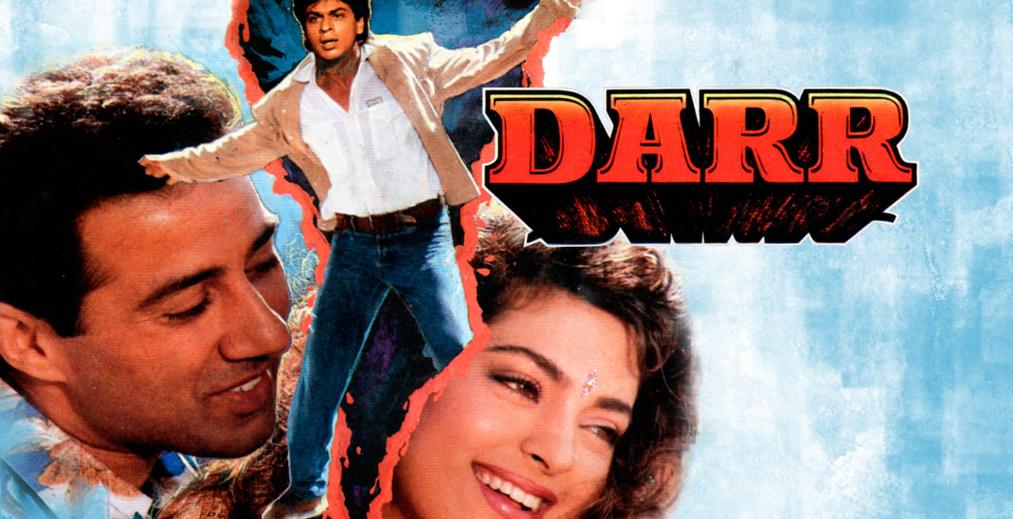
Before he became the “King of Romance”, Shah Rukh Khan portrayed one of the most haunting and disturbing villains in Bollywood history with Yash Chopra’s Daar. The frenetic embodiment of obsessive, unrequited love, Khan’s Rahul stalks his self-proclaimed soulmate (Juhi Chawla) with an oddly charming and psychotic disposition. As the founder of Bollywood’s premiere production house, Chopra’s lengthy catalog is no stranger to iconic one-liners, but none have gone on to be as biting and as bone-chilling as Khan’s infamous “I love you KKKiran”.
Sunny Deol’s protagonist was so overshadowed by Khan’s electric turn, he never worked with him again. A sentiment that’s incredibly easy to understand, especially as one might find themselves strangely rooting for him. While Daar is home to some of its era’s inherent cheesiness, including a sequence that Lazily rips off Top Gun, it endures as a riveting look at love’s more sinister, obsessive building blocks.
Silsila (1981)
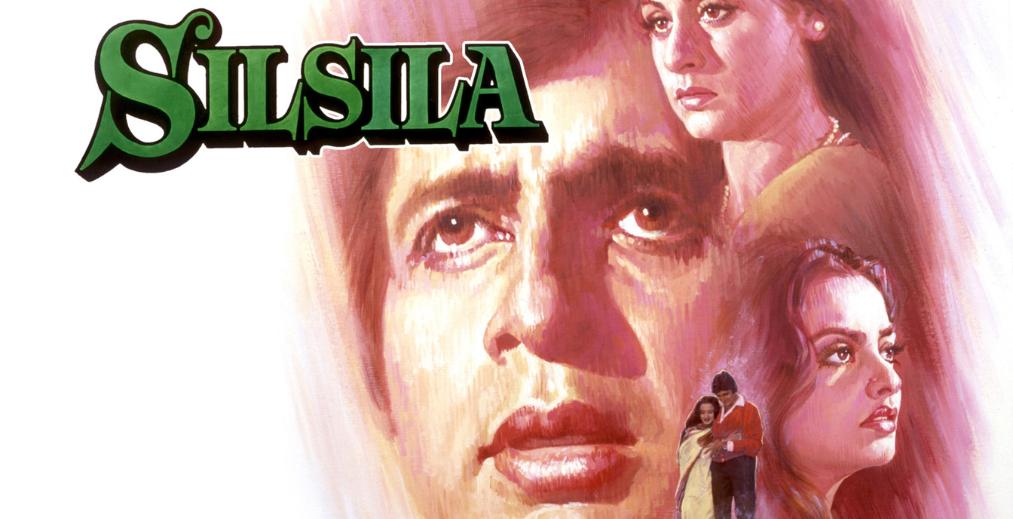
Yash Chopra’s Silsila is another classic examination of love and its tortured relationship with societal obligations. Its wistful story follows two orphaned brothers, Amit (Amitabh Bachchan) and Shekhar (Shashi Kapoor), a military pilot. Their inseparable bond meets a tragic end when Shekhar’s helicopter is shot down in Kashmir. Amit feels obliged to marry his brother’s reeling, pregnant fiancée (Jaya Bachchan), even if it means forsaking his own true love, Chandini (Rekha). Years pass, but the feelings linger, brought to sweltering boil when Amit bumps into his now-married former lover.
Silsila marked a watershed moment for the Bollywood romance in the early 80s. Where unconventional and risqué issues like infidelity were vehemently avoided, it tackled them head-on. Unafraid to make audiences uneasy as they rest with the emotional mess these characters make of their lives. Its sympathetic approach to an extramarital affair is at once so scandalous and breathtaking that it wrings every emotion out of its swooning, painful thicket of unfulfilled love.
The real-life circumstances surrounding the film only serve to reinforce its enduring power. In casting the actual Bachchan couple and Amitabh’s alleged mistress at the time, the one-and-only Rekha, Silsila imbues itself with a tangible layer of pathos. One that still isn’t easy to dispel more than 40 years later.
Mughal-E-Azam (1960)
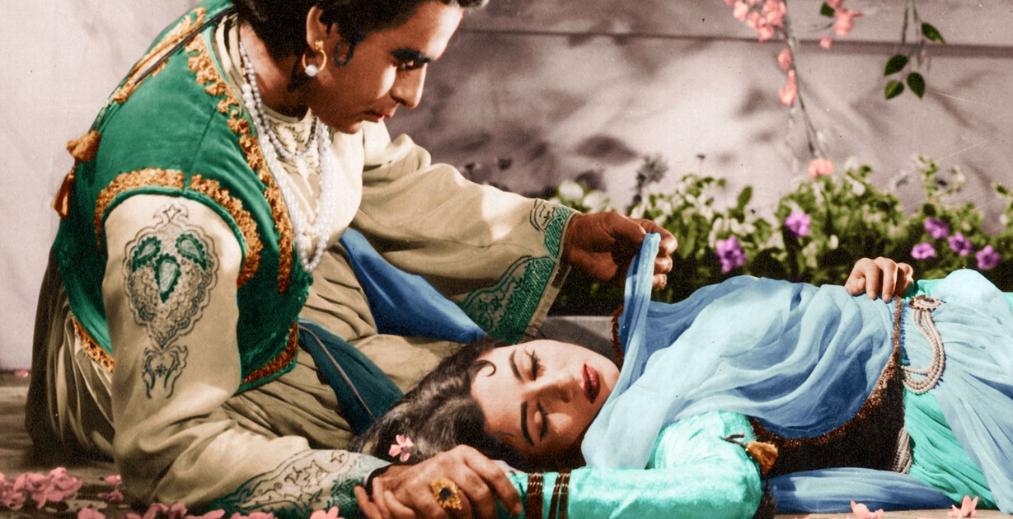
What more is there to say about K. Asif’s gargantuan Mughal-E-Azam. Rivaling even the Hollywood epics of the time, it remains India’s grandest production to date. A sublime tour de force with its sumptuously designed sets and lyrical mode of storytelling. Shot mostly in black & white—apart from two dazzling color sequences—it tells the story of forbidden love at the height of the Mughal Empire in the 16th century.
Asif’s fable follows a prince (Dilip Kumar, method acting his heart out) who falls in love with a court dancer (an intense Madhubala) much to the chagrin of his emperor father (Prithviraj Kapoor). It’s a familiar tale that pulsates with a haunting beauty, given force by an enthralling cornucopia of songs beautifully sung by Mohammad Rafi and Lata Mangeshkar. Mughal-E-Azam’s opulent form of melodrama is at once simple and complex, with its straightforward romantic structure subtly commenting on and condemning the racial, social, and sexual divides that restrict something so universal as love.
There is no time better than Valentine’s Day to get lost in the music, color, and splendor of Bollywood romance. No other filmmaking tradition has given us so many reasons to fall in love.

